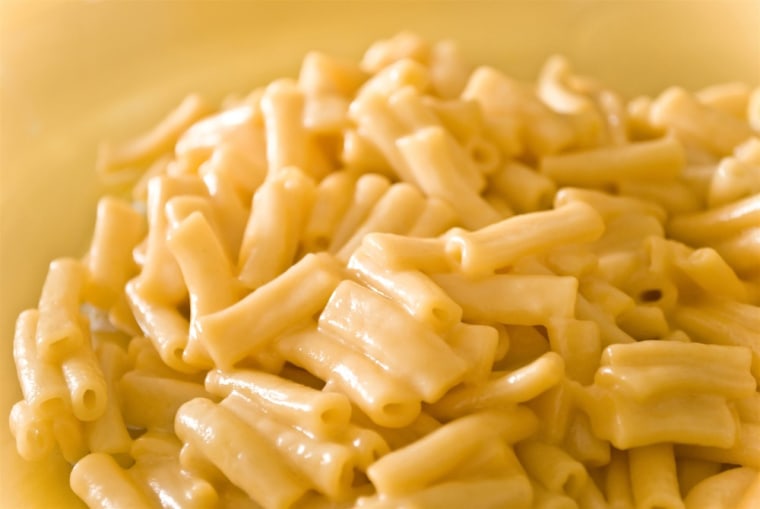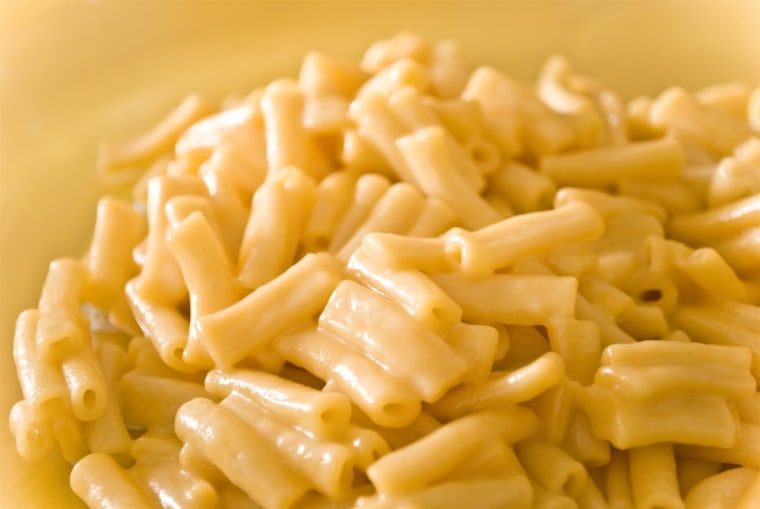If you're sleep deprived or have an irregular sleep schedule — and that basically includes all of us —there might be a way to retrain your internal clock for better rest.
A research study published in Cell Reports Thursday finds in mice that eating certain foods can help reset the body's circadian clock, making it easier to handle insomnia or jet lag.
The circadian clock is the mechanism in the brain that tells the body when to sleep and when to wake ,often because of environmental clues. Light is the strongest influence on circadian clocks; early morning light wakes the body and helps it feel sleepy when the sun goes down. It's one reason experts say we need to shut off our electronic devices with their glowing screens an hour before bed.

Experts have long known that food plays a role in the circadian clock but the new research shows how insulin levels in the blood can influence sleep.
“This is just saying that we are looking at food as a strong regulator of circadian rhythm and [if we understand] exactly how it works … we can take advantage of this,” says Dr. Christopher Winter, a sleep medicine expert at Charlottesville Neurology & Sleep Medicine, in Virginia, who was not involved in the study. “I think there is definitely a relationship … food regulates sleep.”
To understand how food influences the circadian clock, Makoto Akashi of Yamaguchi University in Japan, gave mice insulin or withheld it. The amount of insulin given could change the circadian clock— extra insulin induced drowsiness, too little caused wakefulness.
“We found that insulin treatment caused a phase adjustment of the circadian clock,” writes Akashi via email. “When insulin adjusts the clock, diurnal rhythms of sleepiness are also gradually phase-shifted because sleepiness in under the control of the circadian clock.”
This means that spikes of insulin change our circadian rhythms and can induce sleep.
“If you want to be an early bird, habitual carbohydrate-rich foods at dinner might help you,” says Akashi, cautioning that more research is needed.
Tips to train the circadian clock:
Wake every day at the same time, even weekends.
“You’re not doing yourself any favors if you get up later,” says Winter. “It is probably better to get up at your normal time.”
Waking at different times confuses the body and can lead to social jetlag, which occurs when our body’s natural rhythms are out of sync with our lives. If after a few hours, people feel like the walking dead, it’s better to take a nap.
Light is the strongest regulator of the circadian clock. Waking in morning light will help people feel more awake and later feel sleepy when it is dark.
Eat protein for breakfast
“Eat the majority of your protein during breakfast,” Winter says. “Protein gets toward producing dopamine … dopamine makes people feel more awake.”
Also, exercising earlier in the day will spur dopamine production, increasing that wakeful feeling.
Eat carbs later in the day
There is a reason that Thanksgiving dinner makes everyone feel sleepy and it’s not the tryptophan.
“It is the insulin changes from the carb bombs in your gut,” says Winter.
High spikes of insulin, created by carbs and sugars, make people feel sluggish and sleepy. Eating carbs for dinner will slow the body down and ready it for sleep.
But avoid the midnight snack. Night owls who scarf a late dinner are at greater risk of weight gain, a 2011 Northwestern Medicine study found.
